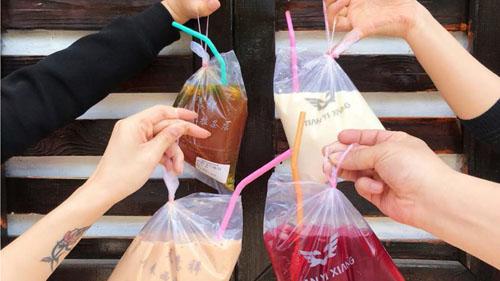Tax to Beat the Dreaded Bulge
2019-06-11M.VeeraPandiyan
M. Veera Pandiyan

“Babi lah lu! (Youre a pig!)” used to be a common insult in Malaysia although it is no longer taken lightly in these “highly sensitive” days.
But the reality is, swine and humans do share many similarities – eating habits, for example. Both are omnivorous mammals that tend to gain weight easily because of their incessant eating.
When it comes to “pigging out”, Malaysians are way ahead of five fellow Asean countries: Singapore, Indonesia, Thailand, the Philippines and Vietnam.
We have the highest rate of obesity (13.3%) and overweightness (38.5%), in addition to the highest proportion of diabetics (14.9%), according to the World Health Organization (WHO) estimates.
With more than half of the population deemed unhealthy, the cost of medical management for obesity — related illnesses ranges between RM 4.08bil to RM 8.15bil a year.
Its a massive amount, considering the RM 29bil allocated for health under the 2019 Budget.
There are now 2.5 million people aged 18 and above in this country with diabetes, and one in four Malaysians are expected to be diabetic by next year.
Research shows that sugary drinks increase the risk of type 2 diabetes, heart disease and other chronic conditions.
People who consume between one and two cans of sugary drinks a day have a 26% greater risk of developing type 2 diabetes over those who do not.
Yet Malaysians, known for their largely sedentary lifestyles, continue to quench their thirst with sugar sweetened beverages (SSBs).
Five years ago, the WHO slashed its sugar intake recommendations by half – from 10% of daily calorie intake to 5%.
For an adult of a normal body mass index (BMI), that works out to about 6 teaspoons or 25g of sugar per day. A can of soda may contain between 8.5 and 10 teaspoons or 34g and 40g of sugar.
In line with the WHOs Global Action Plan for the Prevention and Control of Non-communicable Diseases (NCDs), many countries introduced taxes targeted mainly at SSBs, to reduce obesity and rising levels of diabetes.
Some opted for voluntary agreements with beverage and food manufacturers to encourage healthier food and drinks.
In three weeks from now, Malaysia will join the nations that have imposed taxes on SSBs.
This is the implementation of a plan suggested by Prime Minister Tun Dr Mahathir Mohamad last August.
Excise duty of 40 sen will be imposed on drinks containing more than 5g of sugar per 100ml and juices containing more than 12g of sugar per 100ml from July 1.
While the taxing of drinks with high sugar content is a good move towards addressing obesity and diabetes in the country, it should be combined with other approaches and incentives for choosing healthier foods.
The government can play a bigger role in this, not only through the Health Ministry but also by involving the Education Ministry, Domes?tic Trade and Consumer Affairs Ministry and Agriculture and Agro-Based Industry Ministry.
How about starting with the carbohydrate — laden food and sweetened drinks served in school canteens, government department cafeterias and food outlets in hospitals and clinics?
Instead of just focusing on sweet drinks that come in cans and bottles, scrutinise the fattening effects of roti canai, mee goreng and teh tarik too.
Also, look at coffee and tea sold in 3-in-1 sachets, cordials, powdered drinks and confectionery.
According to the 2014 Malaysian Adult Nutrition Survey, the most favoured drinks among adult Malaysians are sweetened tea, coffee and malted drinks, not carbonated drinks or other packaged beverages.
It should also be studied whether the SSB excise is a regressive tax that disproportionately affects poor people.
The poor are already spending a large part of their income on food. Paying more for these drinks may result in those in B40 switching to cheaper and unhealthier drinks and products.
Perhaps the Finance Ministrys Tax Reform Committee should re-examine the scope of the excise and broaden the application to cover all products with high sugar content.
This will be a more effective way to reduce the overall sugar intake amongst Malaysians.
All stakeholders, including consumer groups and manufacturers of food and drinks, could be invited to work with the government and help to address the issue of obesity and NCDs.
For example, in Spain, the government has reversed its proposal to introduce sugar tax and is pursuing a voluntary programme with drink and food manufacturers to reduce sugar, salt and fat by 10% on 3,500 products by 2020.
In the case of Malaysia, manufacturers should also be given more opportunities to come under a similar voluntary programme.
They should also be given adequate time, like in the case of the United Kingdom, where manufacturers were given two years to reformulate their range of products before the implementation of SSB levy last year.
Clear and consistent nutrition and calorie labelling must also be made mandatory because consumers need better information to make wiser choices.
For the long term, there must be a well-coordinated, multi-level approach supported by comprehensive public health and community education to ensure real culture shift and behavioural change among Malaysians. Media consultant M. Veera Pandiyan likes this Yiddish proverb: If you are bitter at heart, sugar in the mouth will not help you.
